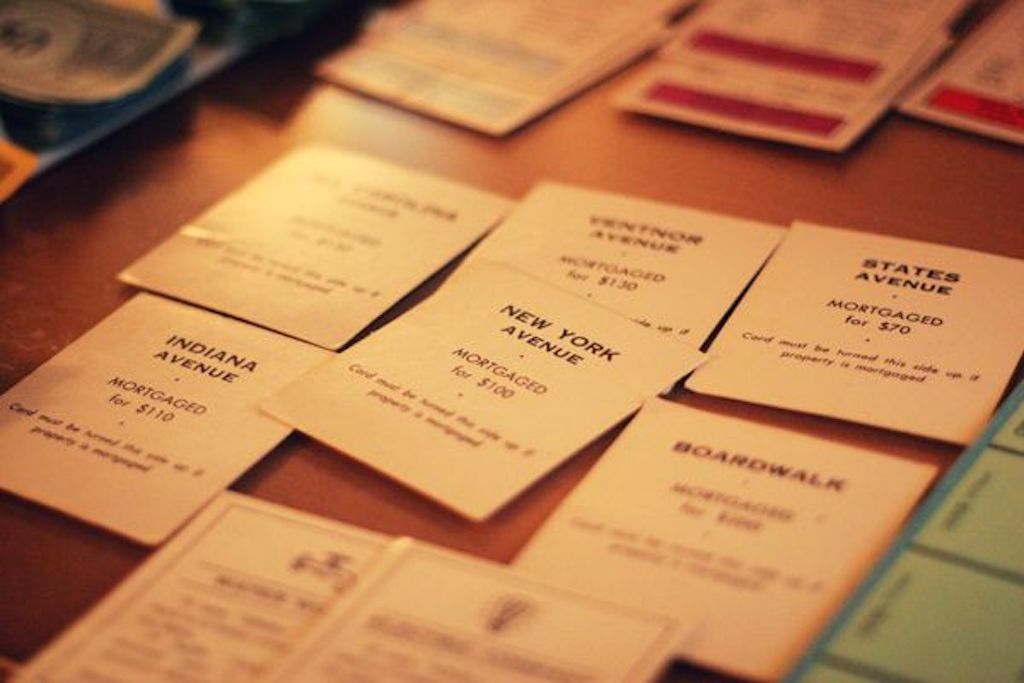All the worst things about games at camp I learned from Monopoly (part 3)

This is part 3 of a series of blog posts based on a presentation that I’ll be doing for SCampCon 3 on February 11, 2021. More info: summercampcon.com
Think for a moment about what it takes to win Monopoly. As players land on other players’ properties, they pay rent and begin to lose money. And depending on if you play by the rules as written or by house rules, like FREE PARKING, the process of losing money can go quickly or drag on painfully long. Eventually, some players are able to build houses or hotels onto their properties, escalating the cost of rent, and at some point, other players are forced to mortgage, trade, or sell their properties in order to stay above water. If they can’t, they are eliminated, and the game is one step closer to being over with one player being declared the winner.
Monopoly is a last-player-standing type of game. Only when all the other players have gone bankrupt and been eliminated from the game is the game won. This is a common win condition in games. The question is, what’s a player supposed to do when they are out? Are they expected to stay at the table and watch? That can be especially boring for the first few players who are eliminated.
The thing about Monopoly is that it’s won only when everyone else has been eliminated.
Problem #3: Player Elimination
Last-player-standing games are common at our camps. Many of our classic camp games and icebreakers feature the same win condition as Monopoly. Simon Says, Musical Chairs, Tag, Bobs and Statues, and any “last-is-out” games are some examples that come to mind. These games are based on narrowing down the crowd to one winner. The bigger the crowd, the more problematic elimination games can become, especially since this can lead to problem #1, being too long. When the group of campers is 300-strong, it’s no fun being one of the first eliminated from the game and have to wait until everyone has been eliminated until the game is over. It might be unrealistic to expect them to sit and wait patiently while the game concludes. I’ve witnessed many campers mentally check out at this point, and sometimes they act out or become disruptive because of boredom. Perhaps we’ve tried to remedy this by inviting players to help judge when other players need to be eliminated, but this can be a poor substitute for actively participating in a game.
Good camp games keep players engaged throughout the entire experience.
Player engagement is crucial for a positive game experience. At our camp, we try to avoid elimination games as much as possible and opt instead to use games that keep players engaged for the whole duration. Find games where the win condition is based on accumulating points, crossing a finish line, or completing a set of goals rather than being the last one standing.
Sometimes a player elimination game might be appropriate for certain situations. My recommendation would be to use them sparingly, with smaller groups of campers, and with quick rounds.
Another suggestion is to look for how to convert an elimination game into an “expansion” game. The best example I can think of to illustrate this is “Sharks and Minnows.” Essentially a game of tag, which is typically an elimination game, Sharks and Minnows adds a change of roles for players who have been tagged. Tagged Minnows become Sharks and help to tag other Minnows in subsequent rounds. And this role is ever-expanding with additional players. This type of changing roles is different from the remedy of eliminated-players-become-judges that was suggested above because players continue to actively play for the duration of the game. There is no sitting out. In addition to changing roles, some other expansion mechanisms include: losing players join the winning players’ team (e.g., Team Rock-Paper-Scissors) and lone players get assimilated into a larger team (e.g., Amoeba Tag). With some creativity, you can probably find ways to convert your favorite elimination games into expansion games where players are actively engaged for the entire duration instead of becoming mere spectators. Instead of eliminating players, seek to eliminate boredom!